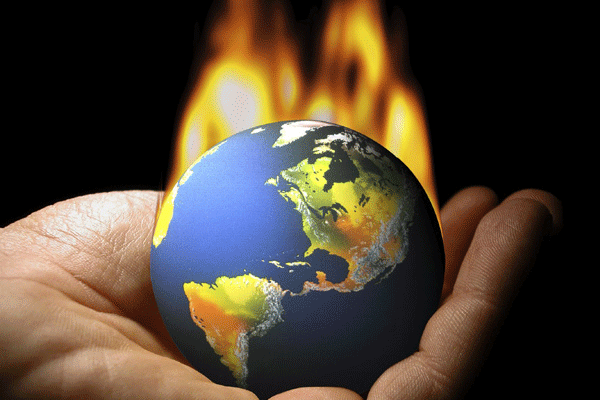
Imagine you were an Eskimo, living in a beautiful two-roomed igloo in Russia. Imagine waking up one day to find yourself lying in a puddle of water because your house of ice has melted. Imagine being homeless and stranded. Simply because your entire city has melted.
Environment By Thandekile Moyo
Then imagine you were British. Born and bred in the United Kingdom. Imagine living on this island, totally surrounded by water. Imagine waking up one day, to find the entire country submerged in water.
Let’s come back home. Imagine waking up one day to temperatures so high that you can’t even breathe. Imagine it being so hot that normal body systems are unable to perform their self-cooling functions. Imagine it being so hot that you cannot go to work, you cannot sleep, you cannot do anything, nothing at all.
What if you woke up one day, to find salt (sea) water has infiltrated your drinking water? What if you went from borehole to borehole, ran from dam to dam and river to river, only to discover all the water is undrinkable, because it’s salty?
Imagine being a farmer planning for the winter season. You would go and buy your wheat seed. Stock all the necessary pesticides. You would wake up every day for a month, planting your winter crops. Imagine waking up one day in the middle of winter. To find it’s raining cats and dogs. And all your winter crop has been destroyed!
Imagine living in the Democratic Republic of Congo. In a city right on the Equator. Imagine waking up one day to find children playing happily in snow. You would probably die of shock and fear that they might freeze to death.
Our seasons seem to be changing. Late last year, my parents planted their crops just before the rains with hope that the rains were about to come. But the rains came late. And they had to plant again. For everything they had planted before had wilted.
- Chamisa under fire over US$120K donation
- Mavhunga puts DeMbare into Chibuku quarterfinals
- Pension funds bet on Cabora Bassa oilfields
- Councils defy govt fire tender directive
Keep Reading
My grandmother always gathers some wild fruit called umnyi/nyi for us. Every April holidays we go to our rural home to each collect our share. This year there was none. She says the rains came too late and caused the fruit to rot. She also mentioned there had been “too much rain”.
Last year, we heard that Cape Town had run out of water. There literally was no more water in Cape Town. All their reservoirs had dried up and they had to “import” water.
A few years ago, we woke up to the headline that there had been snow or “snow-like” precipitation in Lower Gweru in Midlands province. That was extremely shocking because Zimbabwe’s climate isn’t snowy, not by a long shot!
What the world seems to be experiencing is a phenomenon on called climate change or global warming. The world’s climate is changing. What this means is that our world is getting warmer. Scientists argue over whether this is caused by natural climatic cycles where over centuries, the climates of different places change, the climates “evolve”; or whether it is caused by human activities that lead to the increase of the world’s temperatures.
Some people define global warming as a gradual increase in the overall temperature of the Earth’s atmosphere generally attributed to the greenhouse effect caused by increased levels of carbon dioxide, chlorofluorocarbons (CFCs) and other pollutants.
This particular definition blames humans for global warming. Carbon dioxide levels are increased by the cutting-down of trees, among other things. Pollutants are what we emit into the atmosphere through our various activities such as industry.
Simply put, carbon dioxide and pollutants prevent heat from escaping back into the atmosphere, they become like a blanket over the Earth that traps heat, blocking it from leaving the Earth. This trapping of heat is called the Greenhouse Effect.
Normal processes are that the Sun warms the Earth and excess heat escapes back into the atmosphere. This creates a balance of energy which ensures that we stay warm, but do not overheat. Human activities, when uncurbed, affect the balance and cause the climate to change.
Increased heat causes our glaciers and icy areas to melt; when ice melts, our sea levels rise; when sea levels rise, floods hit our coastal areas; increased temperatures mean increased evaporation, which means excessive rainfall; increased heat in dry areas lead to droughts…
These are just some of the effects of global warming, but they are many and quite devastating. Ecosystems are disrupted. Animals become extinct. Biodiversity is affected.
The worst-case scenario is that igloos will melt, island countries will be submerged and we will all overheat and die. But this is unlikely to happen. The more real effects are those we are seeing every day — the heat waves, the floods, the extreme cold, the unpredictable rainfall patterns and the droughts.











